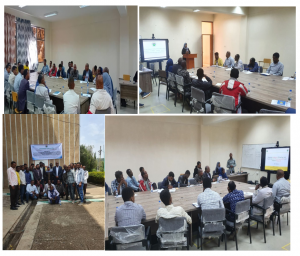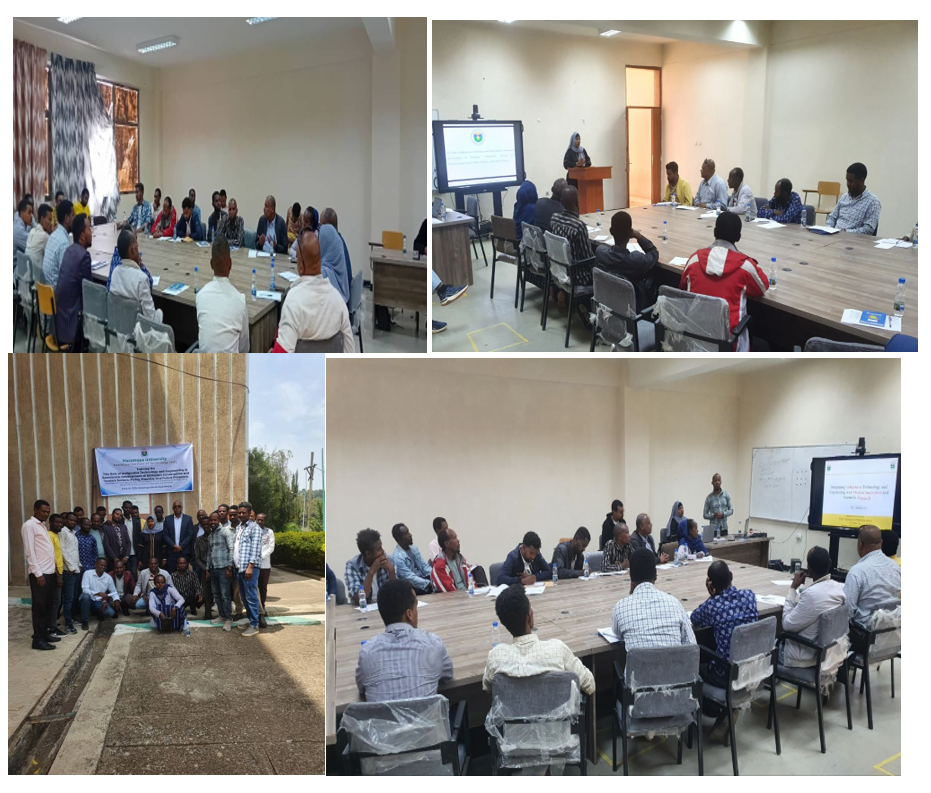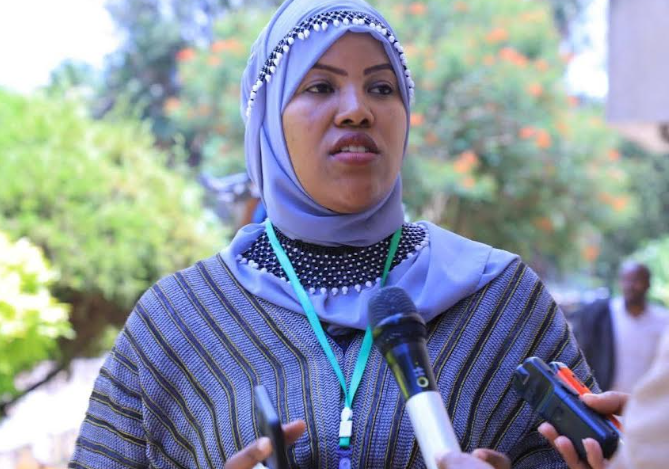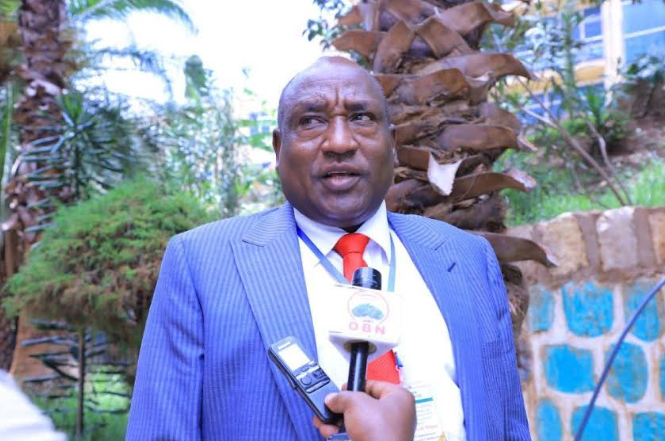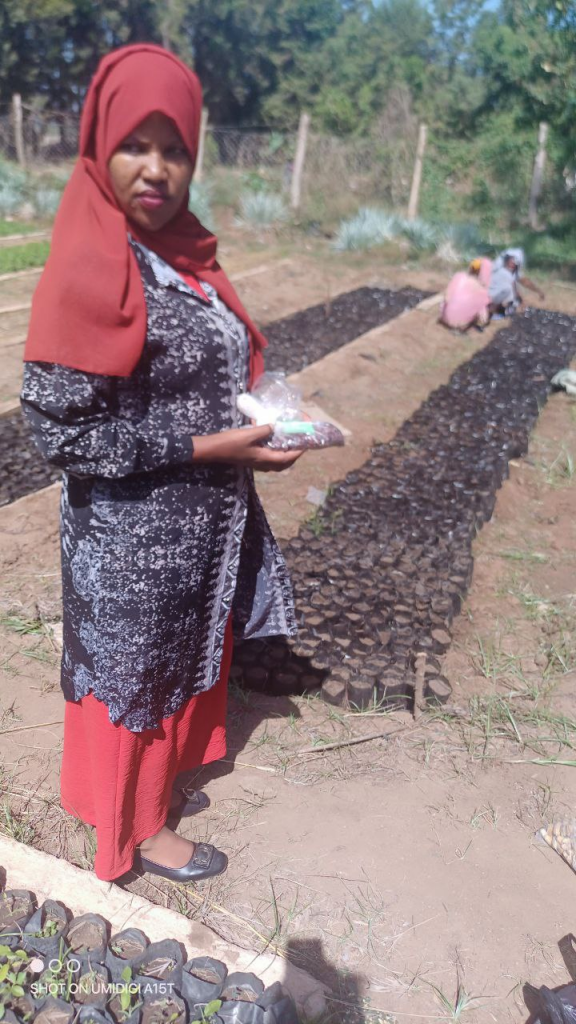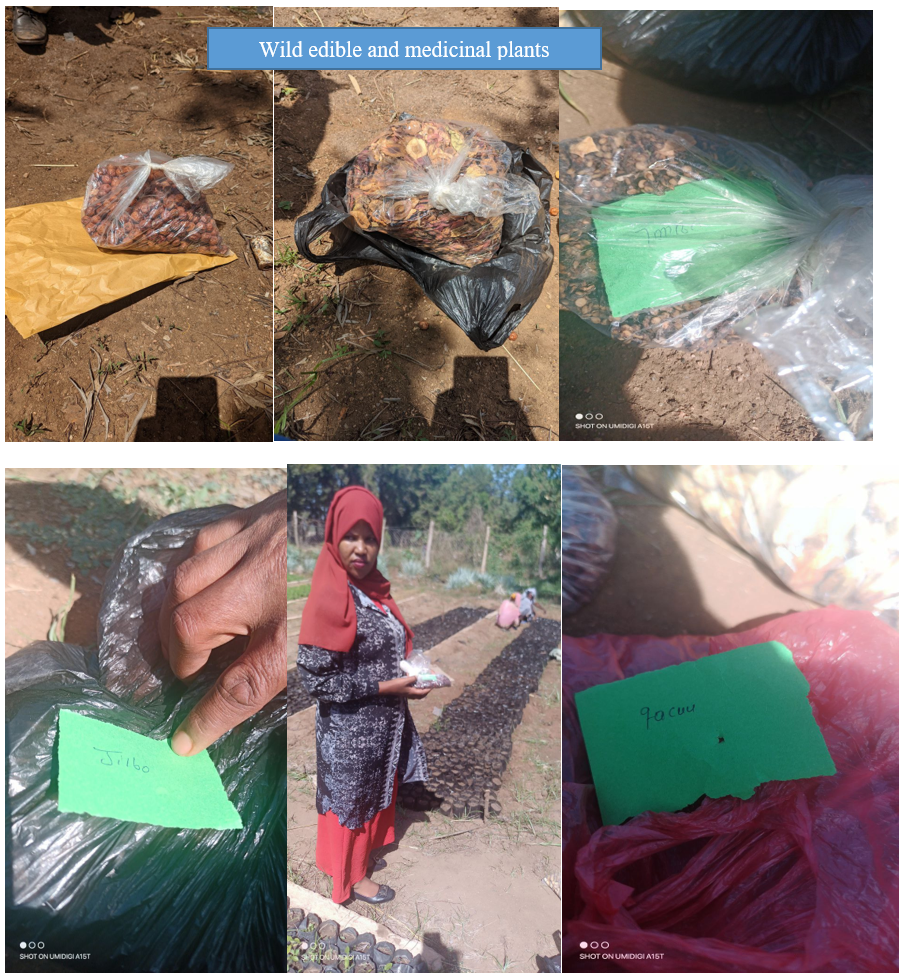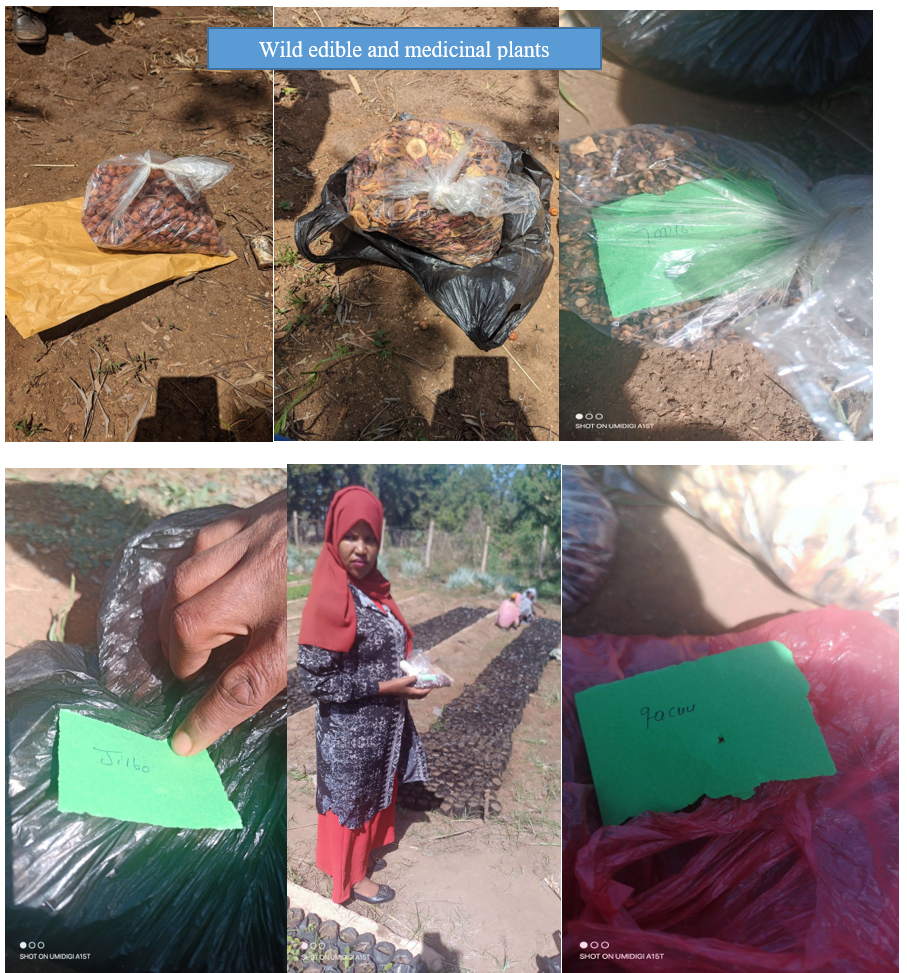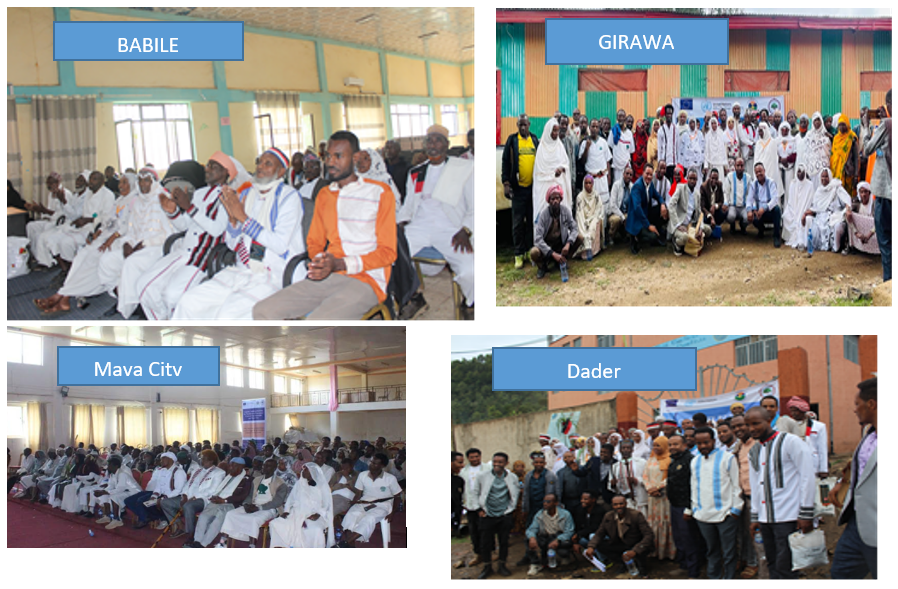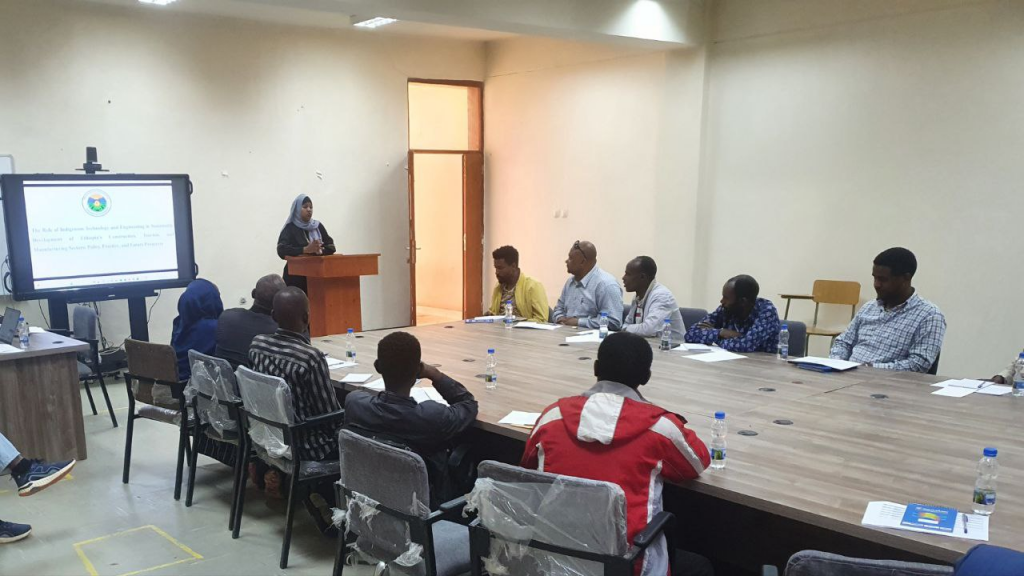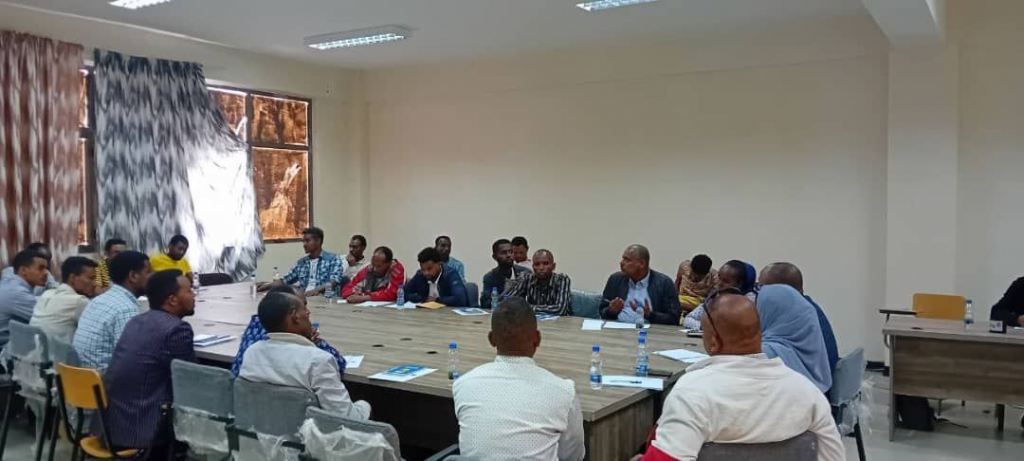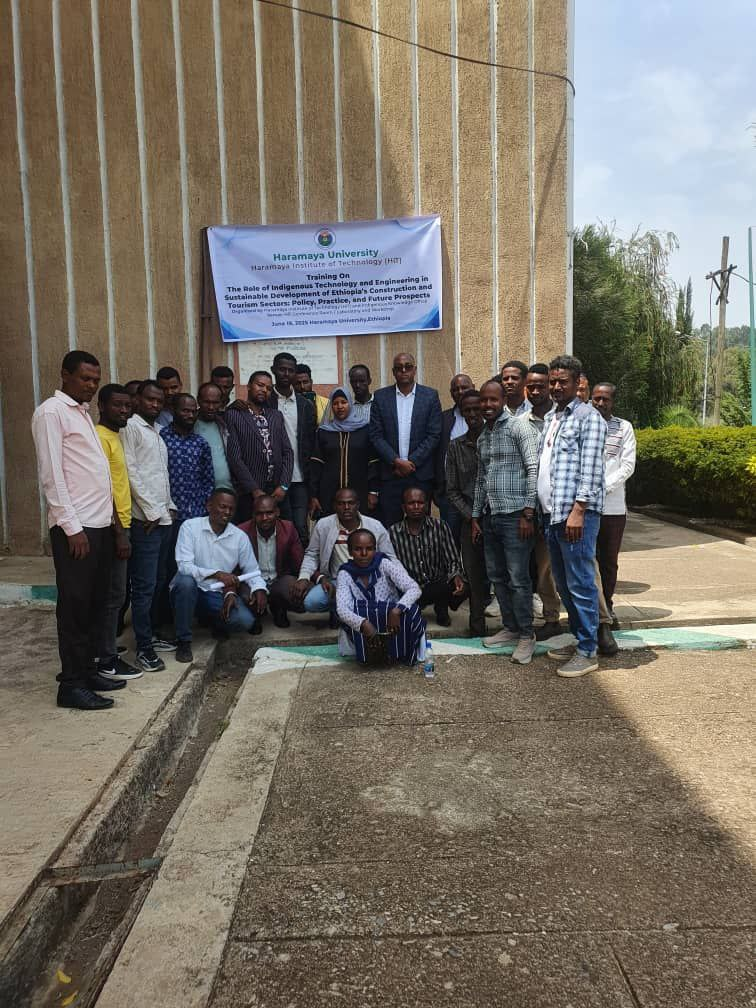TRAINING ON Understanding and Implementing Indigenous Justice Principle and integrating Customary Conflict Resolution Mechanism with Modern Justice System
The training entitled: “Understanding and Implementing Indigenous Justice Principle and Integrating Customary Conflict Resolution Mechanism with Modern Justice System” prepared in collaboration with Indigenous Knowledge Coordination Office, College of Law, east Hararghe High Court and Maya city. Training focused on capacity building for elders of customary court of east Hararghe was given from May 5-8, 2025.
For this training, all 22 woredas and two administrative cities (Babile and Dadar) in the zone were grouped into three clusters as well as three sub-cities of Maya city Haramaya, Awaday, and Adele as shown in the following picture. As a result, 250 representative elders from east Hararghe and 100 from Maya city attended the sessions.
The first main point of the training focuses on, understanding and implementing the Indigenous Justice Principle which involves recognizing and respecting indigenous communities' unique cultural values, traditional norms, and conflict resolution practices.
The second main point of the training was about Integrating customary conflict resolution mechanisms with the modern justice system entails.
generally, the major aim of the training was giving capacity building to the elders of customary court to strange indigenous practice and enhance indigenous conflict resolution mechanism within Hararghe society
National Workshop: Potential of Indigenous Knowledge and Tourism for Sustainable Development on: May 8, 2025
Organized by: Indigenous Knowledge Office Coordinator & Directorate of Entrepreneurship and Technology Incubation.
It was the First National Workshop on IK. highlighted the critical role of Indigenous Knowledge (IK) in Ethiopia’s sustainable development.
It fostered interdisciplinary dialogue among scholars, community leaders, and policymakers to explore indigenous systems in healthcare, agriculture, technology, Gada and culture, and tourism.
Critical Discussions & Recommendations
• Policy & Collaboration: Advocate for IK inclusion in national policies, inter-university databases, and regional/federal IK office partnerships.
• Community Engagement: Incentivize IK holders (e.g., healers) to share knowledge through certification and land grants for medicinal plant conservation.
• Education & Research: Integrate IK into school curricula and prioritize research on high-potential resources (e.g., Prunus africana).
• The other workshop activities include cultural dress show and Cultural food exhibition as part of indigenous element of people of the areas.
Generally, the workshop ignited a roadmap to leverage Ethiopia’s IK for equitable development, emphasizing documentation, legal protection, and cross-sector collaboration.
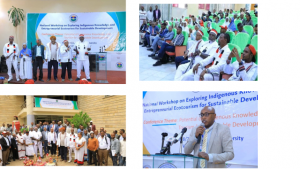
The Indigenous knowledge Office is proud to officially launch the Indigenous Knowledge (IK) Office through radio and media platforms such as HU FM, Fana TV, ETV, OBN, and Harari TV. A workshop accompanied by a food and cultural exhibition successfully showcased the community’s rich indigenous traditions and cuisine.
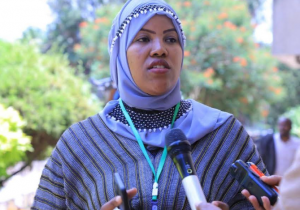
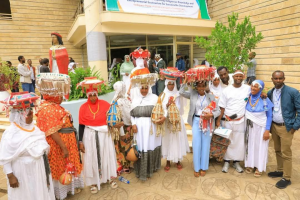
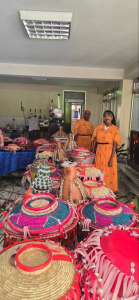
TRAINING ON Understanding and Implementing Indigenous Justice Principle and integrating Customary Conflict Resolution Mechanism with Modern Justice System
The training entitled: “Understanding and Implementing Indigenous Justice Principle and Integrating Customary Conflict Resolution Mechanism with Modern Justice System” prepared in collaboration with Indigenous Knowledge Coordination Office, College of Law, east Hararghe High Court and Maya city. Training focused on capacity building for elders of customary court of east Hararghe was given from May 5-8, 2025.
For this training, all 22 woredas and two administrative cities (Babile and Dadar) in the zone were grouped into three clusters as well as three sub-cities of Maya city Haramaya, Awaday, and Adele as shown in the following picture. As a result, 250 representative elders from east Hararghe and 100 from Maya city attended the sessions.
The first main point of the training focuses on, understanding and implementing the Indigenous Justice Principle which involves recognizing and respecting indigenous communities' unique cultural values, traditional norms, and conflict resolution practices.
The second main point of the training was about Integrating customary conflict resolution mechanisms with the modern justice system entails.
generally, the major aim of the training was giving capacity building to the elders of customary court to strange indigenous practice and enhance indigenous conflict resolution mechanism within Hararghe society
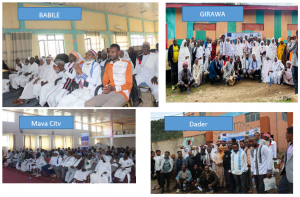
Capacity-Building Training on Traditional medicine practitioners for potential Integration into the Conventional Healthcare System
This capacity-building training provided to traditional healers with the aim of promoting their potential integration into the conventional healthcare system. The training was organized to enhance mutual understanding, improve community health practices, and foster collaboration between traditional and modern healthcare providers.
From different districts and town of east Hararghe as well as Maya city, totally 34 trainees were participated in the training and exchange their knowledge and experience with the trainer. The discussion was constructive and revealed a strong willingness among practitioners to collaborate with the formal health system, provided their roles and knowledge are respected. The training concluded successfully with active participation and positive feedback from traditional healers. The initiative represents a significant step towards building a more integrated and culturally responsive healthcare system.
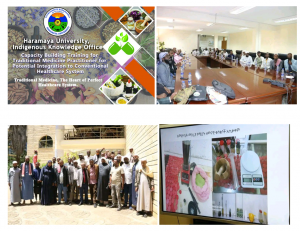
Acquisition and Documentation of Traditional Medicinal and Wild Edible Plants in East Hararghe
Documentation of Published and Unpublished Sources
Efforts have been made to compile both published and unpublished sources on traditional medicinal and wild edible plants in East Hararghe. Various articles, community knowledge, and field observations have been collected to preserve indigenous ethnobotanical practices. These sources highlight the cultural and therapeutic significance of local flora, ensuring that traditional knowledge is systematically recorded for future research and conservation.
Nursery Preparation for Seed Raising
To support the conservation and domestication of valuable plant species, nursery preparations have been initiated. Around 10 nursery beds have been prepared to facilitate seed germination and seedling growth. These beds will enhance the propagation of key species, ensuring their availability for both ecological restoration and community use.
Seed Collection of Traditional Medicinal and Wild Edible Plants
Seeds from 10 important plant species have been collected for propagation and domestication. These species were selected based on their medicinal, nutritional, and economic value to local communities. The collected seeds will be used for cultivation in nurseries and agroforestry systems to promote biodiversity and sustainable use.
The following species have been prioritized for domestication due to their cultural significance and ecological benefit.
- Balanites aegyptiaca (Badanoo)
- Berchemia discolor (Jajabaa)
- Gardenia ternifolia (Gaambelloo)
- Oncoba spinosa (Jilboo)
- Osyris quadripartita (waatoo)
- Punica granatum
- Tamarindus indica (Roqaa)
- Terminalia brownii (Bireyssaa)
- Toddalia asiatica (geeddaa)
- Kurkuraaefits:
Generally, the systematic documentation, seed collection, and nursery development efforts aim to conserve East Hararghe’s rich ethnobotanical heritage. By domesticating these species, communities can sustainably utilize these plants while preserving biodiversity for future generations. Further research and community engagement will enhance the success of these initiatives.
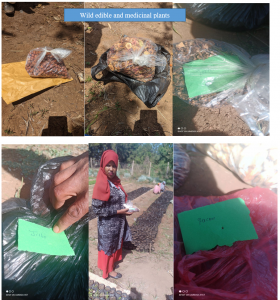
Practical Training on ‘’The Role of Indigenous Technology and Engineering for Ethiopia's Construction and Tourism Industry Sustainable Development: Policy, Practice, and Future Prospects"
The Indigenous Knowledge Office and the Institute of Technology (HIT) Managing Director Office organized a training session on June 11, 2025, at Haramaya Institute of Technology, aiming to integrate Indigenous Technology and Engineering (ITE) with modern practices to advance sustainable construction, heritage-based tourism, and economic resilience. The training highlighted ITE’s role in sustainable development, cultural preservation, and import substitution by examining traditional materials and techniques, their scientific foundations, and their potential for modern applications. Key themes included ITE’s contributions to eco-friendly construction, resilient heritage conservation (e.g., UNESCO sites like Harar Jugol and Fasil Ghebbi), and climate-resilient, low-carbon alternatives to imported materials. Discussions also explored blending indigenous wisdom with modern engineering through research and policy support.
The methodology featured expert presentations, interactive discussions, live demonstrations of traditional techniques, and case study analyses to foster innovation and collaboration between traditional knowledge systems and contemporary engineering education.
The training was given for participants (experts) who represent different vocational collage found in eastern Hararghe, Maya city, Harari and Dire Dawa, two experts from 18 TVET Collage totally 36 trainees has been participated. this training served as a critical platform for knowledge exchange, fostering a new generation of engineers, architects, and policymakers who can leverage ITE for sustainable progress.
